On Illness, Resistance and Modes of Collective (Health) Care
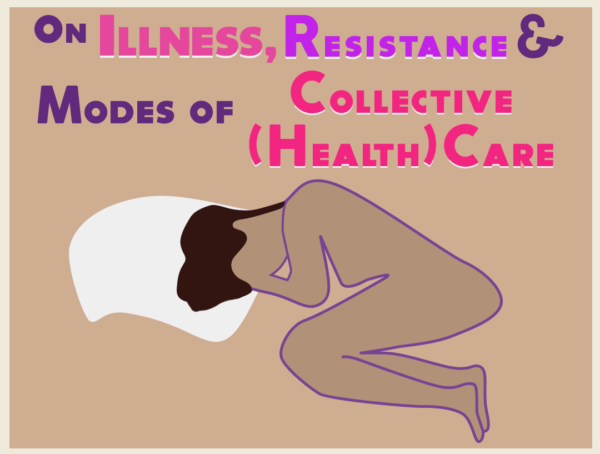
Grafik: Noël Labridy nach Rest von Sophie Utikal aus der Serie When they returned to their Bodies, they returned home, 2019.
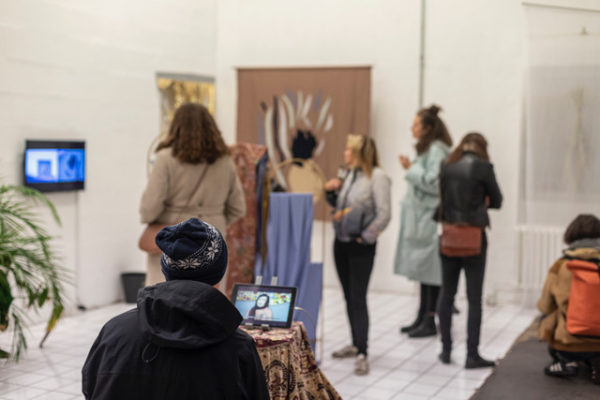
Installationsansicht, Foto: Chiara Faggionato.

Videostill von Protest and Desire, Christa Joo Hyun D'Angelo 2019
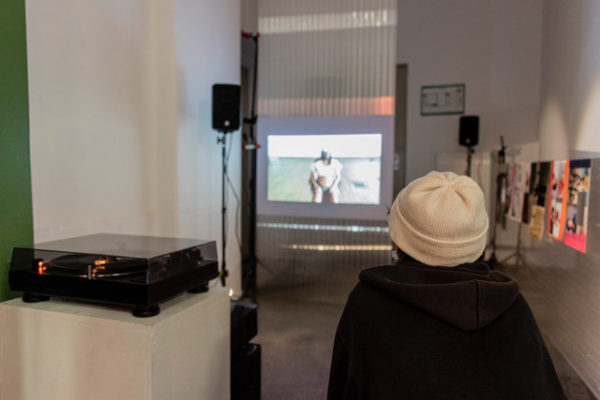
Discoteca Flaming Star, Alive (Hospital(y)tis), Installationsansicht. Foto: Chiara Faggionato.
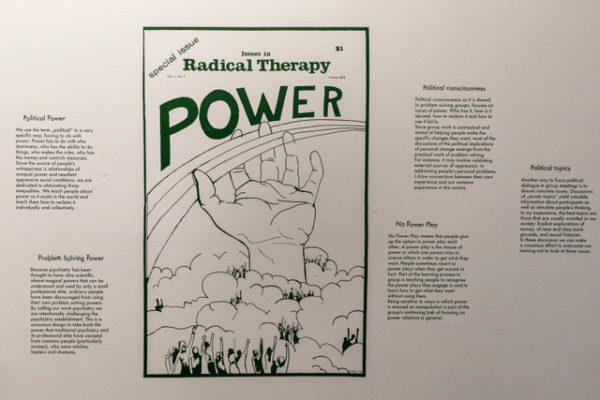
Inga Zimprich (Feminist Health Care Research Group)- A Special Issue in Power. Foto: Chiara Faggionato.
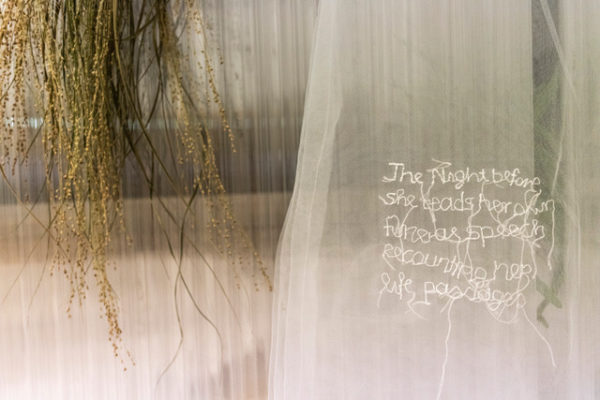
Intimate Talk mit Johanna Ackva zu Tod, Sterben, Trauer und Abschiednehmen. Foto: Chiara Faggionato.
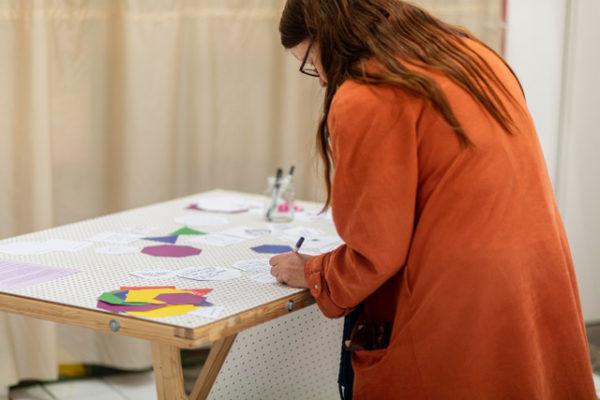
LUV Game : Luv 'til it Hurts, Todd Lanier Lester. Foto: Chiara Faggionato.
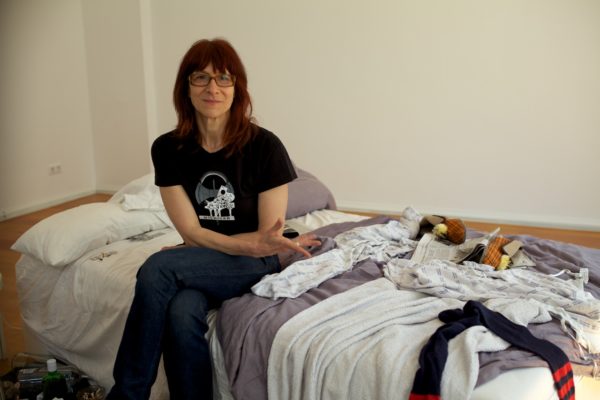
Videostill von Karin Michalski, The Alphabet of Feeling Bad
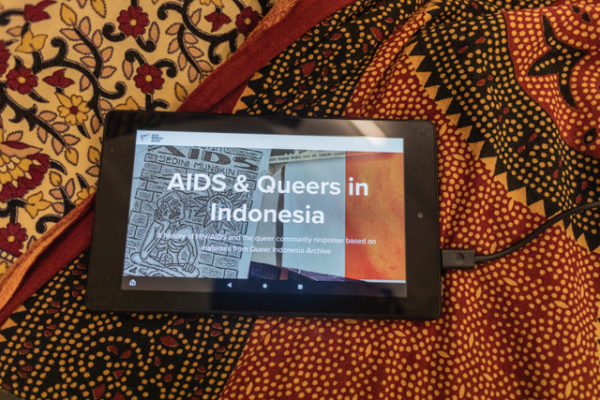
Queer Indonesia Archive (QIA) Digitales Archivierungsprojekt 2019, laufend. Foto: Chiara Faggionato.
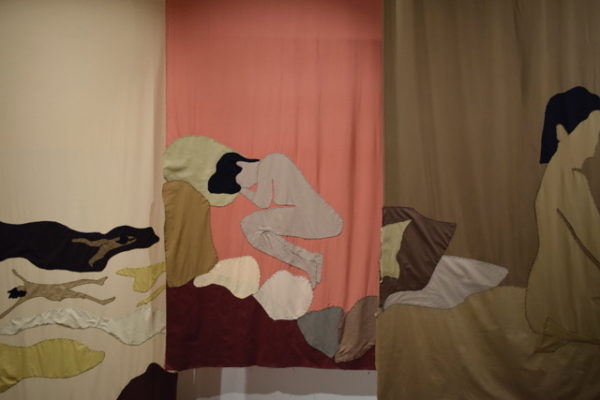
Sophie Utikal, When they returned to their bodies they returned home. Foto: Chiara Faggionato.
Exhibition with growing archive
Artists and participants: Johanna Ackva, Nuray Demir, Discoteca Flaming Star (CGB, Sara Pereira, Sofia Lomba, WM), Christa Joo Hyun D’Angelo, Katrin Dinges, Eugen Januschke (denkmal PositHIV e.V.), Rully Malay (Waria Crisis Center), Karin Michalski & Ann Cvetkovich, Clara Moenchswald, Kallia Kefala, Todd Lanier Lester (Luv til’ it hurts), Platz da! Barrierefreie Kulturvermittlung, Power Makes Us Sick, Queer Indonesia Archive, Ferdiansyah Thajib, Sophie Utikal, Inga Zimprich (Feministische Gesundheitsrecherchegruppe), a.o.
Curated by Andrea Caroline Keppler in cooperation with Ferdiansyah Thajib, Nino Halka, Johanna Ekenhorst and Nuray Demir
14 October – 27 November 2021
Soft Opening with food and bar: 14 October, from 5 to 21 pm
Opening hours:
Tuesday, 12-4 pm
Thursday, 3-7 pm
Friday, 3-7 pm
Saturday, 11 am – 3 pm as well as during events
COVID: To make our gatherings as safe as possible amidst the ongoing corona virus pandemic, we kindly ask everyone to join with a negative Covid test (or do a quick test on site) and wear FFP2 masks when required. There is a test station closeby.
ACCESSIBILITY: We are working on making District more accessible. A wheelchair-accessible ramp and a Dixi toilet are installed for the current events. An assistant will be on site if required and booked in advance. For the way here and back, it is possible to book a free BVG accompanying service here.
For further information and requests, please contact us at: ak@district-berlin.com
Children are welcome.
The attendance of our exhibition and program is free of charge.
(…)
I is for impasse.
I often feel like I don’t know what to do
or like I’m stuck.
Being at an Impasse is not always a bad thing.
Sometimes it’s important to dwell in the space of not
knowing what to do.
(…)
P is also for Public Feelings,
(…) Our goal is to pay attention to feelings as a shared
experience not a private or individual one.
We dream of being able to have our
feelings together in order to feel a little less lonely
and more public.
(…)– Ann Cvetkovich & Karin Michalski: The Alphabet of Feeling Bad, 2012
Our personal stories are closely linked to experiences of exhaustion, crises, illness, loss, injury and exclusion. These lived and embodied experiences and the feelings associated with them resemble constantly transforming landscapes – and the search for forms of dealing with them is permeated by a continuous struggle and failure. We want to make these manifold feelings (more) visible as something shared.
In the exhibition and the archive, we bring together artistic and activist positions that propose or practice alternative forms and relational modes of self-care, of caring for and with and with one another. The exhibition provides initial, fragmentary insights into the current research processes. (Auto)biographical archives are opened, personal and collective experiences are remembered, shared as knowledge and exchanged. The growing archive houses the audio-visual conversation series Intimate Talks, traces of the performative event series as well as documents and research materials.
The 4 thematic fields #1 (Bad) Feelings, #2 Collective Kinship and Care, #3 Solidary and Self-organised (Health) Care and #4 Memory and Care Activism fields are an attempt to approach the constellations and entanglements interwoven within them.
The starting point for #1 (Bad) Feelings is Karin Michalski’s work The Alphabet of Feeling Bad (2012), in which Ann Cvetkovich explains and reinterprets terms from A to Z such as depression, but also everyday negative feelings, such as the idea of being stuck, being overwhelmed or not being enough. She suggests how these feelings can be collectively felt as “public feelings” and politicised in the context of neoliberal labour relations, homophobia and racism.
In #2 Collective Kinship and Care we would like to explore the question of what alternative artistic forms of collective care models exist that are not solely based on the biological family and the so-called care and health care system.
Cluster #3 Solidary and Self-organised (Health) Care is dedicated to self-organised practices and infrastructures of solidarity in the field of health, while in #4 Memory and Care Activism we will explore how remembering histories and ongoing struggles of collective organising in the field of HIV/AIDS activism can help us to think further about contemporary experiences and structures in health care.
13. November, 11-13pm
Feminist Radical Therapy and Alliances Between Women
A Conversation with Gail Pheterson
Hybrid online/ offline event (in English)
12.-14. November 2021
Nuray Demir: Nuray’s Bar of Tears
A bar evening series on collective melancholy and resistance
curated by Nuray Demir with guests
***Unfortunately we have to cancel Nurays Tränenbar (Nuray’s Tear Bar).
Sometimes our tears are too real for the art to be the right place for sharing them.***
24. November, 5:30-7pm
Conversation in the exhibition and growing archive
(in German and English)
Conversation with parts of the curatorial team in the exhibition and the growing archive about illness, resistance and modes of collective (health) care.
Due to the Covid regulations the number of participants is limited. Please register by email to office@district-berlin.com.
Further information on the project and programme here.
With the kind support of the Berlin Senate Department for Culture and Europe.
